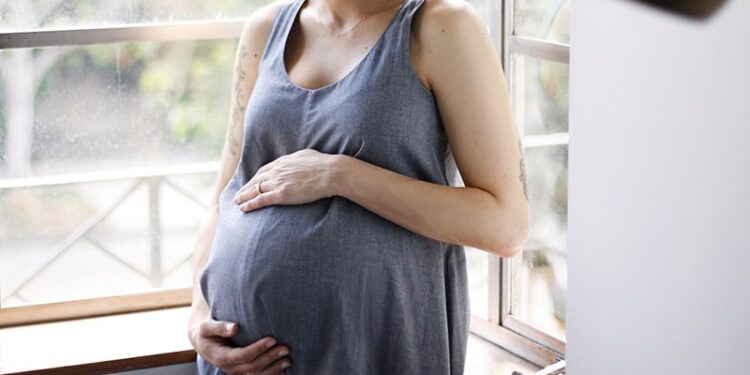There is a clear overall trend of women becoming pregnant with their first child later on in life. Indeed, UK government figures from the Office for National Statistics show that the average age of mothers in the UK for the year 2022 was 30.9 years, the highest since records began. Although this cannot conclusively be attributed to a particular reason, it is widely considered and accepted that contributing factors include women wanting to focus on their careers, wanting to wait until they have met the right partner in life, and not being in a good place financially. Whatever the reasons, the result is unfortunately that older women find it more difficult to conceive. Is 35 too old to have a baby? Here, we take a look at why getting pregnant after 35 is more difficult – but not impossible!
Why getting pregnant after age 35 more difficult – The link between age and egg quality
A woman’s fertility level cannot be precisely measured as it is an overall estimation of likelihood of natural conception. Women begin their life with between one and two million eggs in the ovarian reserve.
This number declines throughout life, and when a woman reaches around age 30, the quality of those eggs slowly begins to decline, alongside the number. The issue with this is that the fewer eggs and the poorer their quality, the more difficult it is to successfully conceive and support a pregnancy. The number and quality of eggs starts to decline more quickly when a woman reaches 35 and is often referred to as age-related fertility decline. This happens irrespective of whether or not a healthy lifestyle is maintained. It’s not just women who need to keep an eye on their fertility – men’s fertility rates also drop with age, although this occurs at a much slower pace than for women.
Fertility often seems mysterious and to be quite honest, it is a bit! There are many different factors that impact a woman’s fertility levels and it’s not an exact science. What we do know is that although physiological factors such as PCOS, fibroids, scar tissue and fallopian tube blockages are some of the most common causes of infertility, there are actually many factors that have a negative impact but that are in your control. These include:
Diet
Poor diet has been linked to poor conception outcomes and a balanced diet, such as the Mediterranean diet, has been associated with better outcomes for IVF. Applying a healthy and balanced diet no matter what stage of your fertility journey can only be beneficial to your conception efforts.
Smoking
Pregnancy and baby charity, Tommy’s, suggests that women who smoke are twice as likely as non-smokers to be infertile. It can also increase risk of miscarriage, stillbirth and preterm birth.
Weight
Women who are overweight release more oestrogen in the body which can disrupt the balance of hormones in the body and cause issues with ovulation. Conversely, women who are very underweight may experience a loss of periods, also called anovulation, a condition which prevents the egg from being released from the follicles each month during the menstrual cycles, thereby preventing natural conception as the egg will not be able to meet with any sperm.
Alcohol
Although the odd drink here and there is unlikely to have much impact on your fertility, drinking regularly and/or heavily can have an impact on hormone production. A woman’s hormonal balance is very delicate and when disrupted, it can affect ovulation. It can also affect sperm quality in men – it takes two to tango, so if you’re trying to conceive, it’s recommended that both partners cut back on alcohol for a while to give yourselves the best chance of conceiving successfully.
Stress
Stress can have an indirect effect on a person’s fertility. This is because the stress hormone, cortisol, can affect the production of other sex hormones, in particular, oestrogen and progesterone which are both vitally important for normal menstruation and conception.
Toxins in the environment
Yes, as strange as it sounds, the chemicals and pollutants you are exposed to in the air (think car pollution, fumes from new carpets or cleaning products) can have a negative impact on your fertility.
Other factors to consider when it comes to conceiving later in life
It’s not just age to consider when getting pregnant in later life, it also comes with an increased risk of miscarriage and chromosome abnormality.
According to the MSD Manual, maternal age and risk of having a baby with a chromosomal abnormality increases with age: at age 20 the risk is just 0.2%, age 30 0.3%, and at age 35 this risk doubles to 0.6%. Age 40 sees a 1.6% risk, and age 45 5.4%.

Risks associated with being pregnant over the age of 35
Pre-eclampsia is a problem with how well the blood can get into the placenta and can lead to irregular blood pressure in the mother. It can also lead to early birth which comes with its own increased risk of complications, such as issues breathing and a low birth rate. Symptoms of pre-eclampsia can include headaches with vision disturbances, pain, and even vomiting.
Gestational diabetes is a serious health condition that can impact both your pregnancy and your baby’s health although it usually disappears after you have given birth. It has an impact on how the body’s cells use glucose. The result is high insulin levels for the mother and baby growing to be very large – much larger than is normal.
Unfortunately, women over 35 also have a much higher risk of stillbirth. This risk increases even further when women reach the age of 40.
Despite potential difficulties, you can still have a healthy pregnancy
Is 35 too old to have a baby? Despite the risks and difficulties associated with conceiving and being pregnant later in life, there are many women who have healthy and successful pregnancies after the age of 35. If you are 35 or over, or are thinking of delaying pregnancy until you are older, then one of the most beneficial steps you can take is to seek a fertility expert. Need a fertility clinic in London? There are plenty of excellent options to choose from. This will allow you to get a good picture of your overall fertility to make sure that when you are ready everything is all in good order or any issues can be dealt with early on if needed. We wish you the best of luck on your fertility journey.













